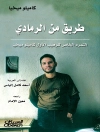Use of the arts in palliative care settings is a powerful and effective way of addressing the practical, psychological, social and spiritual issues faced by service users in end-of-life care.
The Creative Arts in Palliative Care uncovers the possibilities for using the creative arts and provides guidance on how to implement arts projects successfully. Part 1 focuses on designing objectives for the creative arts in palliative care – such as self-fulfilment, social participation, diversion from pain and other common symptoms – and managing creative arts services. Part 2 demonstrates the theory and principles in practice, with detailed case studies: each chapter draws on a real-life project, the approaches it employed and the outcomes achieved.
This book will be essential reading for healthcare professionals, arts practitioners and all those involved in providing palliative care services.
قائمة المحتويات
Acknowledgements. Part I: Developing Creative Arts in Palliative Care. 1. Introduction – The Creative Arts in Palliative Care. Nigel Hartley and Malcolm Payne, St Christopher’s Hospice, London. 2. Managing Creative Arts and Artists in Healthcare Settings. Nigel Hartley. 3. The Palliative Care Community – Using the Arts in Different Settings. Nigel Hartley. 4. Exhibiting, Promoting and Funding the Arts in Healthcare Settings. Nigel Hartley. 5. Research and Audit in Palliative Care Creative Arts. Malcolm Payne. Part II: Experiences of Creative Arts in Palliative Care. 6. Experiences of Creative Arts in Palliative Care – Introduction to Part II. Malcolm Payne. 7. Pottery and Painting. Lynn Harmer, St Christopher’s Hospice, London; Greenwich Community College, South London. 8. Craft Work. Adrian Butchers, St Christopher’s Hospice, London. 9. Digital Arts. Marion Tasker, St Christopher’s Hospice, London. 10. Art Therapy. Samantha Dobbs, St Christopher’s Hospice, London. 11. Community Arts. Virginia Hearth, St Christopher’s Hospice, London.. 12. Beginning to Work as a Community Artist in Palliative Care. Mick Sands, St Christopher’s Hospice, London. 13. Music Therapy in the Community. Tamsin Dives, St Christopher’s Hospice, London. 14. Music and Music Therapy at St Christopher’s Hospice – An Evaluation Study. Abi Gill, National Society for Epilepsy, Buckinghamshire. 15. Conclusion. Malcolm Payne and Nigel Hartley. Bibliography. Contributors. Suppliers. Subject Index. Author Index.
عن المؤلف
Nigel Hartley has worked in End-of-Life Care for almost 30 years, between 2003 and 2015 as Director of Supportive Care at the St Christopher’s Group, London where he was responsible for transforming day and outpatient services, developing volunteers and also leading on Community Engagement. He previously held posts at London Lighthouse, a Centre for those living with HIV/AIDS, and also at Sir Michael Sobell House Hospice in Oxford. He has a postgraduate qualification in management from Ashridge Business School, England and has an international reputation as a teacher and lecturer. Nigel also sits on the Editorial Board of the journal ‘Mortality’ – which promotes the interdisciplinary study of death and dying. He is a Visiting Academic at the University of Southampton and a Fellow of the Royal Society of Arts. He is currently Chief Executive Officer at Earl Mountbatten Hospice on the Isle of Wight in the South of England.












